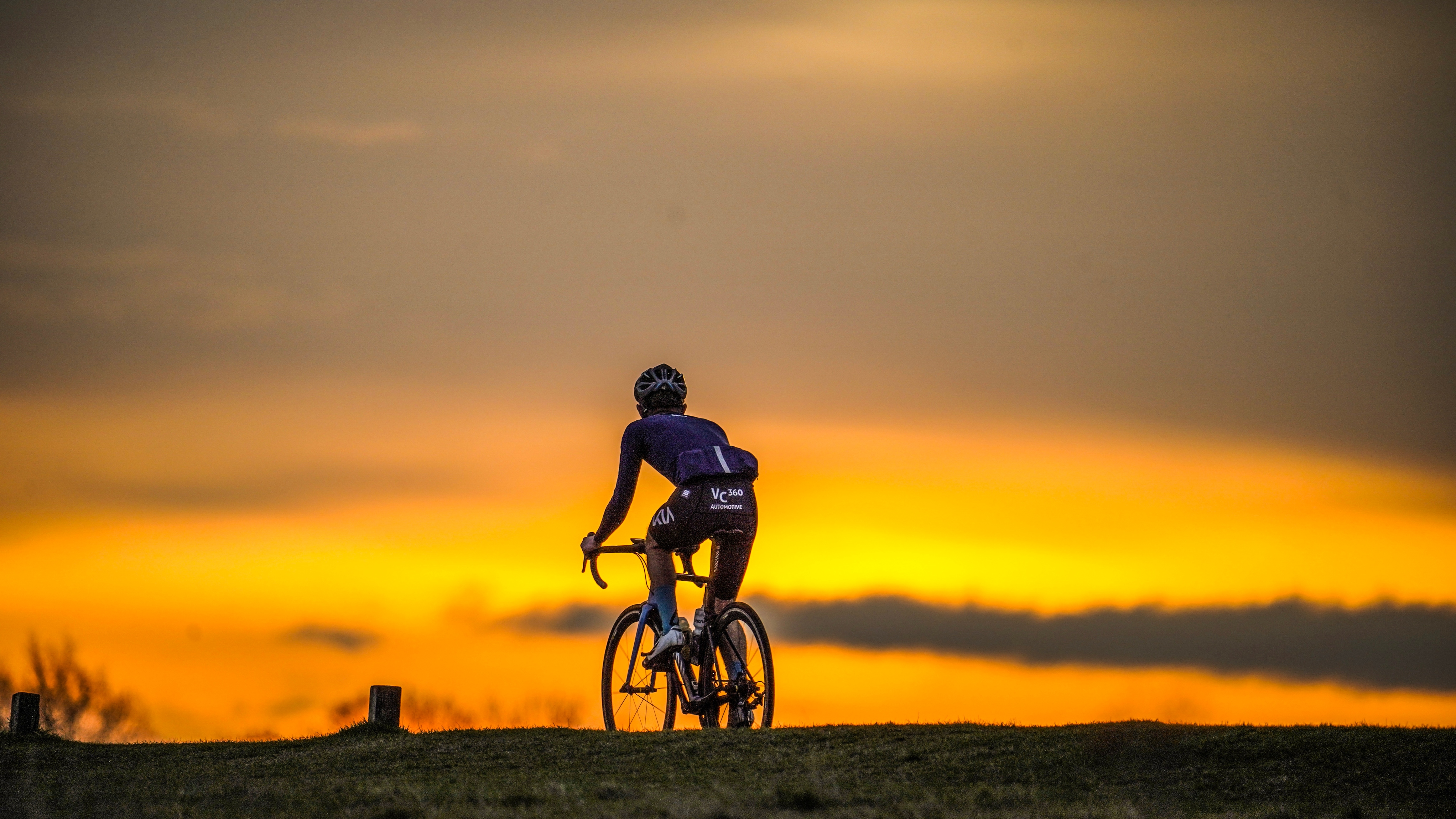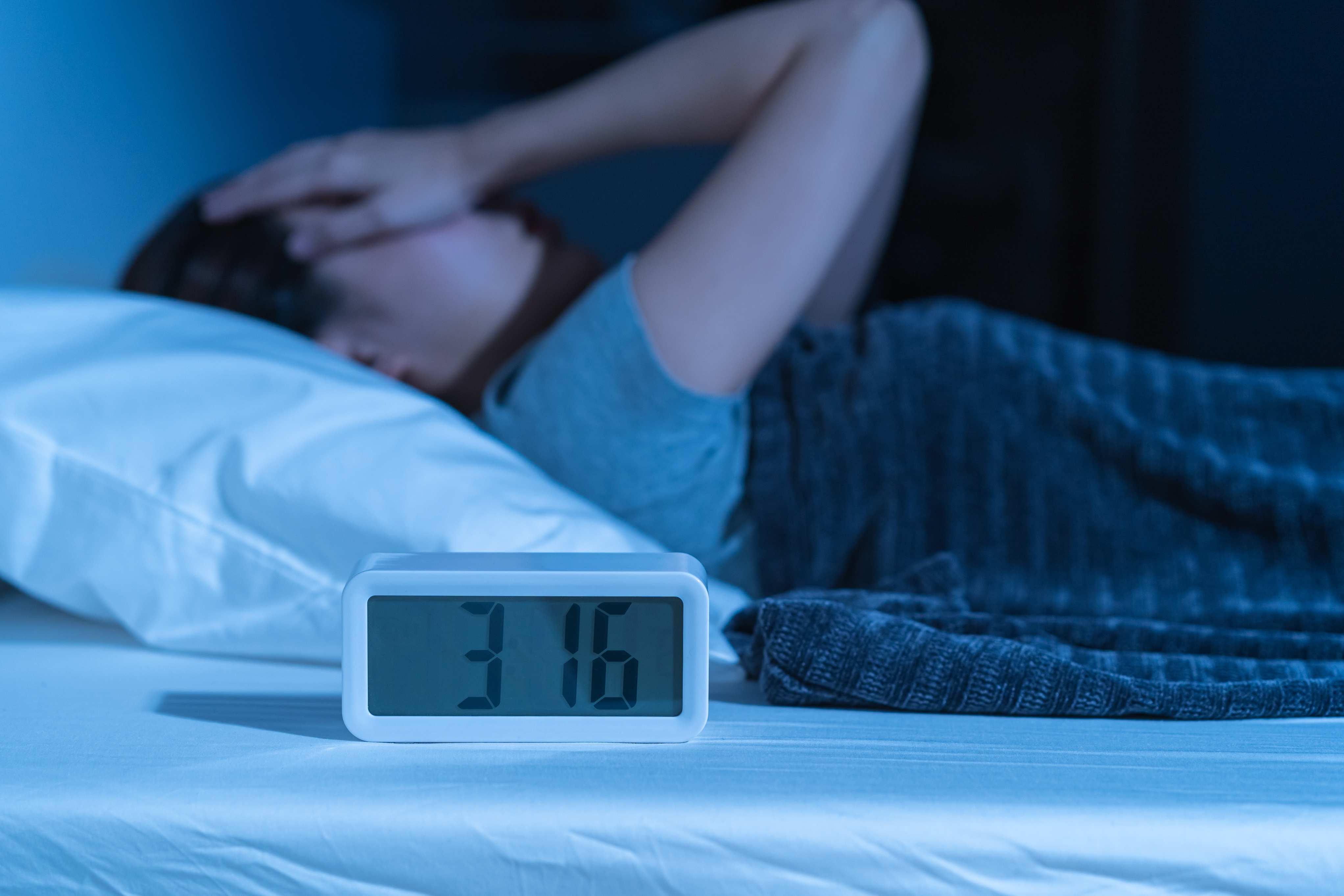If I wake during the night, how can I get back to sleep?: Expert tips on optimising your circadian rhythm for better bike performance
How to harmonise your body’s natural rhythms, when to train and when to start dimming the lights


We all know that sleep is a crucial part of the puzzle when it comes to cycling performance, but what if you're struggling to get enough shut-eye?
We put our questions to Dr Elise Facer-Childs, the deputy director of the sleep and circadian rhythms programme in the faculty for medicine, nursing and health sciences at Monash University, Australia. Facer-Childs has worked with elite and WorldTour teams, helping athletes optimise sleep and biological rhythms to enhance recovery and performance.
How many hours of sleep should we get?
The recommendation from the National Sleep Foundation is seven to nine hours per night for adults. We tend to see athletes needing slightly more, but it does ultimately come down to the individual.
Is there a best time of day to train to complement circadian rhythms?
Training effectiveness depends on individual circadian rhythms. Morning types may perform better earlier, while evening types excel later. Tailoring exercise to natural peaks in energy enhances results. Research suggests that, generally, mornings are better for endurance cycling and more intense cardiovascular sessions, while late afternoon offers a balance of strength, flexibility and reduced cycling injury risk.
What steps can cyclists take to ensure high-quality sleep?
Get The Leadout Newsletter
The latest race content, interviews, features, reviews and expert buying guides, direct to your inbox!
Try to get good-quality sleep by maintaining consistent sleep-wake patterns, creating good sleep habits and behaviours, optimising their sleep environment – cool, dark, and quiet – avoiding caffeine and heavy meals before bedtime, and managing stress. Bear in mind, one night of poor sleep won’t greatly harm performance; it is more about establishing good sleep long-term.
How does overtraining disrupt circadian rhythms?
Overtraining can lead to elevated stress hormones and increased fatigue, owing to disrupted circadian rhythms and sleep. Signs that your internal body clocks might be out of sync include difficulty falling asleep, frequent awakenings during the night and changes to your daytime functioning, alongside drops in performance, irritability and impaired recovery.
How best to nurture regular circadian rhythms?
Athletes could use natural light exposure during the morning to stabilise circadian rhythms. Get up, go outside for a walk. Morning light is a powerful cue for regulating the production of melatonin, a hormone that controls sleep-wake cycles. Exposure to bright light shortly after waking helps reinforce circadian rhythms, improving sleep quality, energy levels, and overall performance.
If I wake during the night, how best to get back to sleep?
Everyone is different, but a few simple things that could help you to get back to sleep are to avoid checking the time, engage in quiet, relaxing activities and avoid stimulating activities. If you continue to struggle, talk to a doctor or sleep consultant. We know that irregular or inconsistent sleep patterns and fragmented sleep can negatively impact overall sleep quality and recovery, leading to decreased performance and increased fatigue.
How does alcohol affect sleep?
While it may help you fall asleep faster, alcohol reduces restorative deep sleep and REM sleep, leaving you feeling less rested. Too much booze can alsp cause more frequent awakenings, further disrupting sleep, and may exacerbate snoring or sleep apnea. It also impacts the body’s natural circadian rhythms, delaying or reducing melatonin production, which is crucial for regulating sleep-wake cycles.
How to sleep like an elite athlete

Keep calm and go to sleep
Sleep coach Nick Littlehales, who is an adviser to British Cycling, provides the following tips for a sound night’s shut-eye
Adjust light gradually: As bedtime approaches, reduce your exposure to bright, blue daylight-like light. Move to dim, warm (amber) light, and then to darkness. The focus should be on limiting light reaching your eyes, not necessarily on making the entire room pitch black.
Check your light levels: Download a free Lux light meter app and measure the brightness (lux levels) of your environment. Aim to keep the light dim and calming before bed.
Stay calm: Avoid intense cardio or other high-energy activities close to bedtime, and don’t overhydrate or eat heavy meals before bed.
Cool down: Your body naturally lowers its temperature as it prepares for sleep. Sleep in a slightly cooler environment (not cold) and use fresh, breathable bedding.
Understand sleep cycles: Sleep works in 90-minute cycles, with the deepest, most restorative stages (stages three and four) happening early in the night. Aim for either four cycles (six hours) or five cycles (7.5 hours) depending on your schedule.
Prioritise sleep quality: The most restorative sleep happens in the first two to three stages. To improve your sleep quality, prioritise daytime habits like physical recovery and mental relaxation.
Wake at the same time: Stick to a consistent wake-up time every day. This helps regulate your body’s rhythm.

Thank you for reading 20 articles this month* Join now for unlimited access
Enjoy your first month for just £1 / $1 / €1
*Read 5 free articles per month without a subscription

Join now for unlimited access
Try first month for just £1 / $1 / €1

Rob Kemp is a London-based freelance journalist with 30 years of experience covering health and fitness, nutrition and sports sciences for a range of cycling, running, football and fitness publications and websites. His work also appears in the national press and he's the author of six non-fiction books. His favourite cycling routes include anything along the Dorset coast, Wye Valley or the Thames, with a pub at the finish.
You must confirm your public display name before commenting
Please logout and then login again, you will then be prompted to enter your display name.